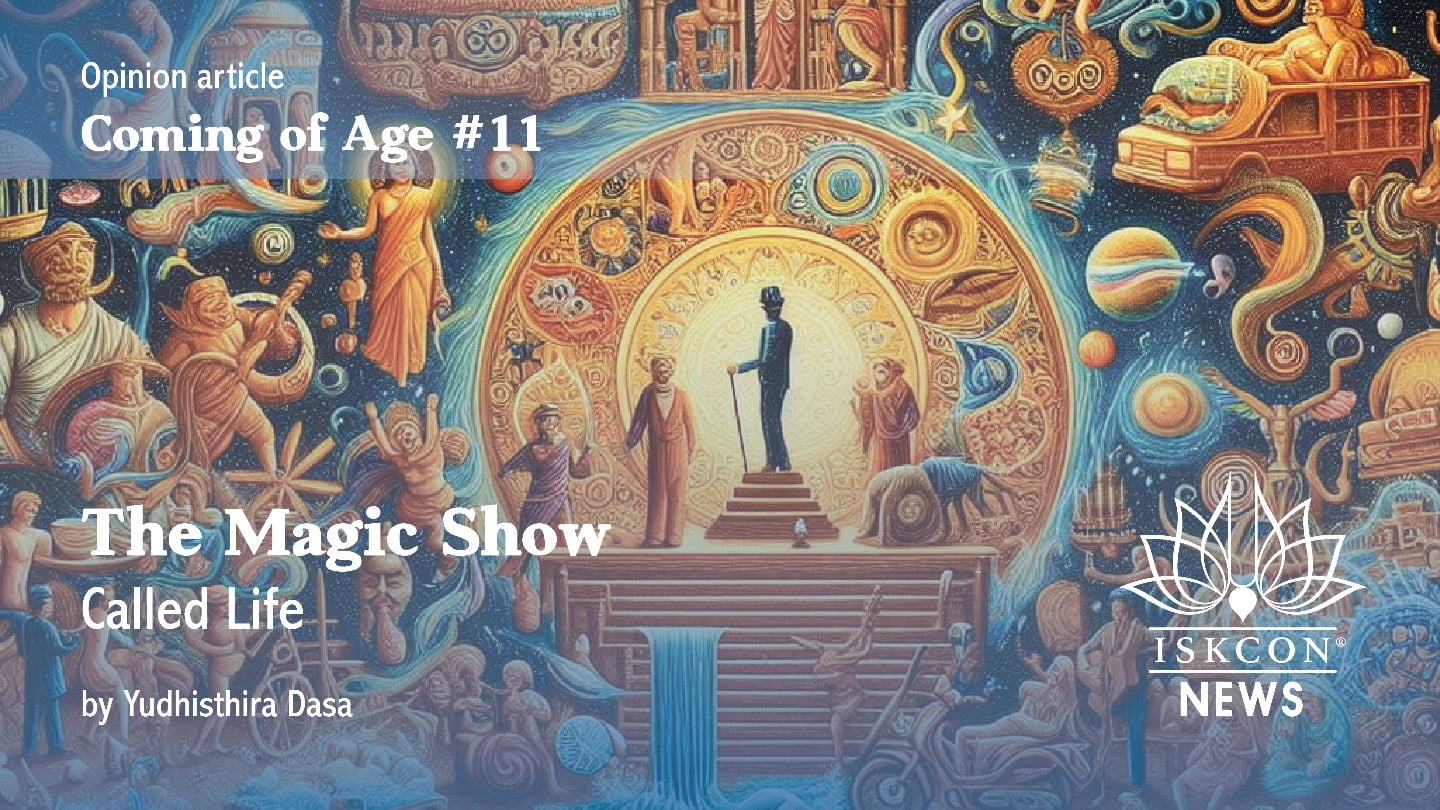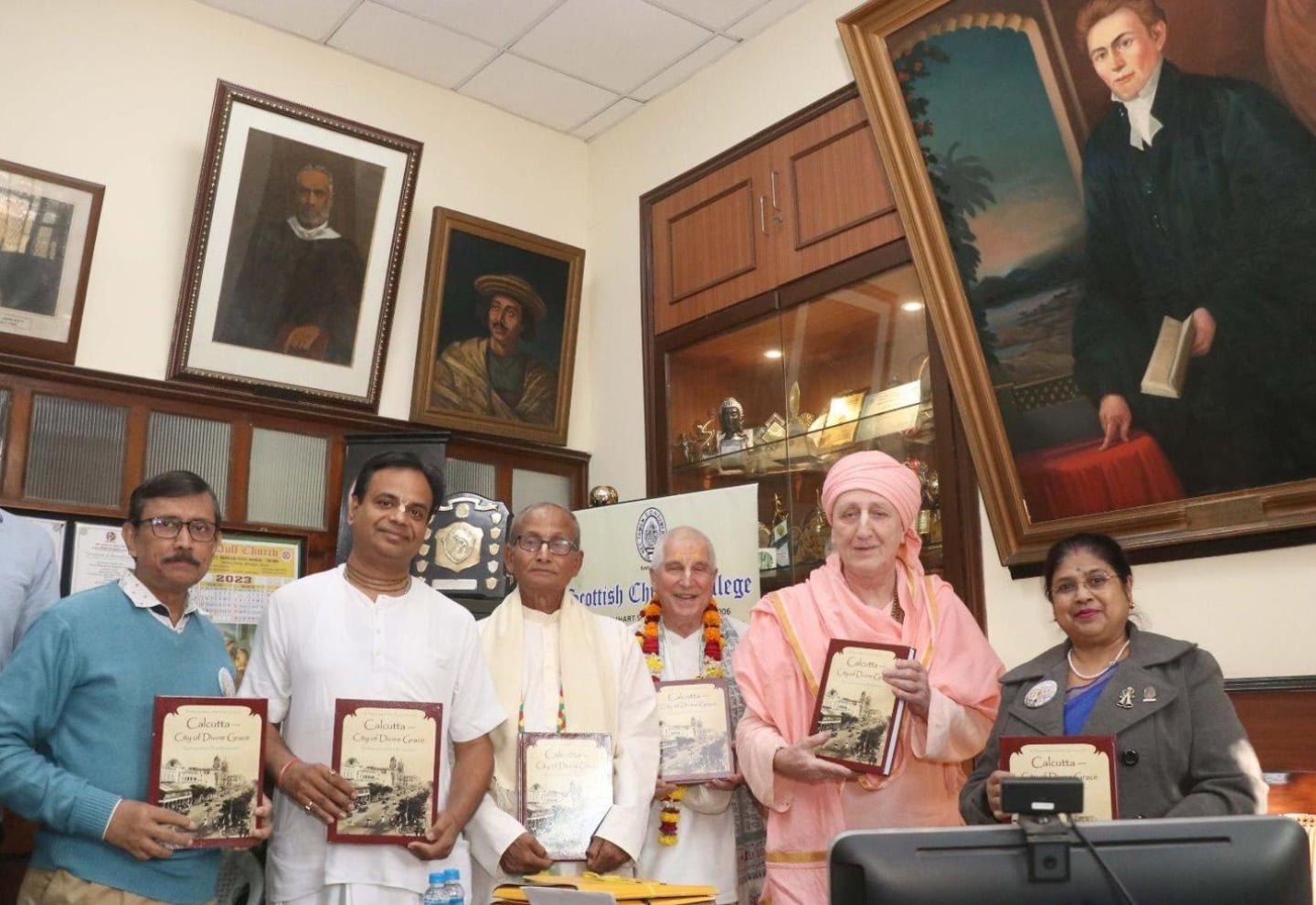Building Trust Within ISKCON
By Akrura Dasa | Jun 17, 2008

Srila Prabhupada wanted us to serve together based on love and trust. Here are some reflections on building trust and some ideas that may be helpful to our temples and projects.
Most organizations are not aware of the enormous cost of low trust, and because they have no means of measuring its impact, they have little motivation to seriously address it. To compound the problem, many people feel like helpless victims of the problems in their organizations and see no clear way to influence their leaders.
In this article, we offer specific, powerful things we can do that can profoundly impact the level of trust in our relationships, our teams, our families, and our movement in general.
Is trust really necessary in life, work or service today? Can we succeed without it?
I believe that we cannot succeed without trust. It is not only important, it is absolutely vital. For instance, even when we are buying gasoline, we trust that we are getting quality fuel; we trust that the prices are within the market; and we trust that our money will be accepted by that person. There are so many elements to the simplest transaction that require trust. But we are sometimes unaware of those implicit elements. Trust is the lifeblood of all relationships, of all transactions, and is fundamental to everything in life.
What are evidences of a low-trust environment?
Low-trust environments are filled with hidden agendas, a lot of political games, interpersonal conflict, interdepartmental rivalries, and people bad-mouthing each other behind their backs while sweet-talking them to their faces.
With low trust, we get a lot of rules and regulations that take the place of human judgment and creativity; we also see that people are disempowered. They will not be on the same page about what’s important. Ultimately, the culture will become driven by urgency rather than importance because everyone is in it only or mostly for themselves and for their own agenda.
What is low trust costing organizations?
Low trust has a huge tax associated with it. It creates a culture of toxicity, just like we have toxins in our body. Imagine what it costs a body to be full of poison. That is what a low-trust culture is – it’s full of poison. We see people embracing and promulgating what can be called the six metastasizing emotional cancers. Metastasize means they send their cancer cells through the body, mind, and spirit of a person. They also spread through relationships.
These cancers are criticizing, complaining, comparing, competing, contending, and cynicism. (By competing, I don’t mean the healthy competition where we are competing to do more service to Krsna or please devotees but competition based on envy and false pride.) These emotional cancers are the forces that literally undermine and eventually destroy relationships. On the other hand, trust helps to make things possible.
If we want to overcome these six cancers, it seems we need a lot of work, in order to build and maintain trust. We may rightly ask, is it worth the effort?
I think it’s absolutely worth it. It’s the most supremely important thing we can do to get the confidence of another person by being true to our commitments, by clarifying expectations, by treating people with kindness and respect, and by learning to be transparent about the information we have so that people trust it and we can almost speak to them in verbal shorthand. We hardly even have to finish sentences when there’s high trust.
Trust speeds up achievement. Without it, everything gets bogged down, slows down; people protect themselves, they think defensively, and they gather other people around them to form cliques. These cliques then judge other cliques, which only compounds the low-trust situation, slows down everything, and levies a huge tax on all human interactions and transactions.
So what behaviours increase trust and is it a skill we can learn?
The metaphor that can be helpful is a Trust Bank Account. It’s like a financial bank account into which we can make deposits and take withdrawals. And if we get into a situation where we are constantly making withdrawals – the kinds that we mentioned above – we get an overdrawn Trust Bank Account. And we all know what happens with a bank relationship when we have an overdrawn account. It kills our freedom, our flexibility, and our credit capacity.
Building trust is not just a skill we can learn, it is a character trait that we have to develop. It is not a technique we can just pick up. We have to be trustworthy in our heart and sincere about what our real intentions are so that we can be transparent. We’re not fearful of being “found out” doing something in the dark when we’re proclaiming something else in the light.
The most important of all deposits into the Trust Bank Account of trust is empathy, because empathy, or listening to another within his or her frame of reference, tells us what the important deposits are to that person. Every person is different. So we have to figure out what is important to them – how do they interpret kindness, consideration, and respect? How do they interpret making and keeping promises? How do they interpret any other positive deposit in the Trust Bank Account?
This is all a function of empathy, and it is the same with our family members, our associates in the service or business, or our customers. The key is to always develop a relationship that produces mutual benefit. In order to do that, we have to deeply listen to other people to find out what the benefit is for them.
If we lose someone’s trust, is it possible to regain it, and how?
It is possible to regain their trust, but to be able to do so, we have to right the wrongs we’ve done; we have to apologize; we have to seek forgiveness; we have to try to make reconciliation in every way we can. But if we are in a state of denial and don’t have the humility to admit that we’ve made a mistake, then we’ve just taken another withdrawal and people will come to not trust our apologies and our asking for forgiveness.
In conclusion, high trust will be possible between people who are trustworthy, who posses both high character traits and competence to get things done well. So, in order to increase trust within ISKCON, we need to start with ourselves, working on becoming a trustworthy person.
Serious devotees’ trust is important to us, because if they trust us, we can get more Krsna’s mercy and be empowered to preach Krsna consciousness more effectively.
To learn more how to apply the ideas from this article, please contact Gita Coaching on akrura@pamho.net












